Results
|
Across these projects we see partisan polarization in firms such that employees at Democratic and Republican firms (across executives, managers, and other levels) are increasingly similar to their colleagues in their partisan expression.
Partisanship, in-turn, impacts firm behavior including hiring behavior and corporate board membership. Applicants were more likely to receive callbacks when they matched firm partisanship. Opposing partisans were less likely to be hired. This pattern also holds for corporate board member replacements. Some highlights from the projects are below:
Corporate Politics: The Emergence of Partisan Polarization in Firms, 1980-2018 - This paper reveals the emergence of three types of firm clusters: polarized Republican, polarized Democrat, and Amphibious firms. We see increasing partisan homogeneity at these Democratic and Republican firms: We see not only increased partisan similarity within levels, there is also increasing similarity of partisanship between levels. That is, employees - whether executives, managers, or lower level occupations were more likely to belong to the same political party. 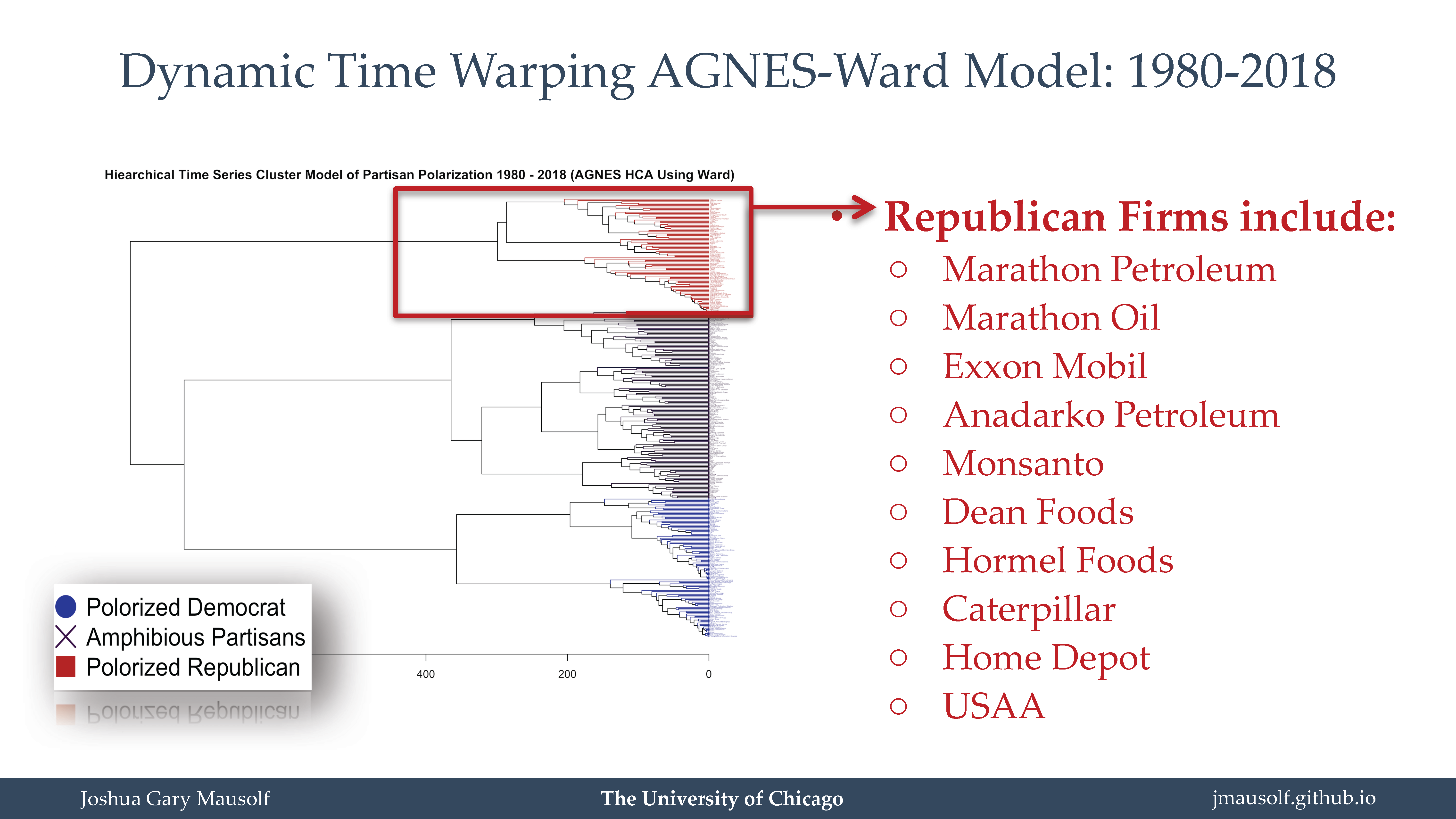
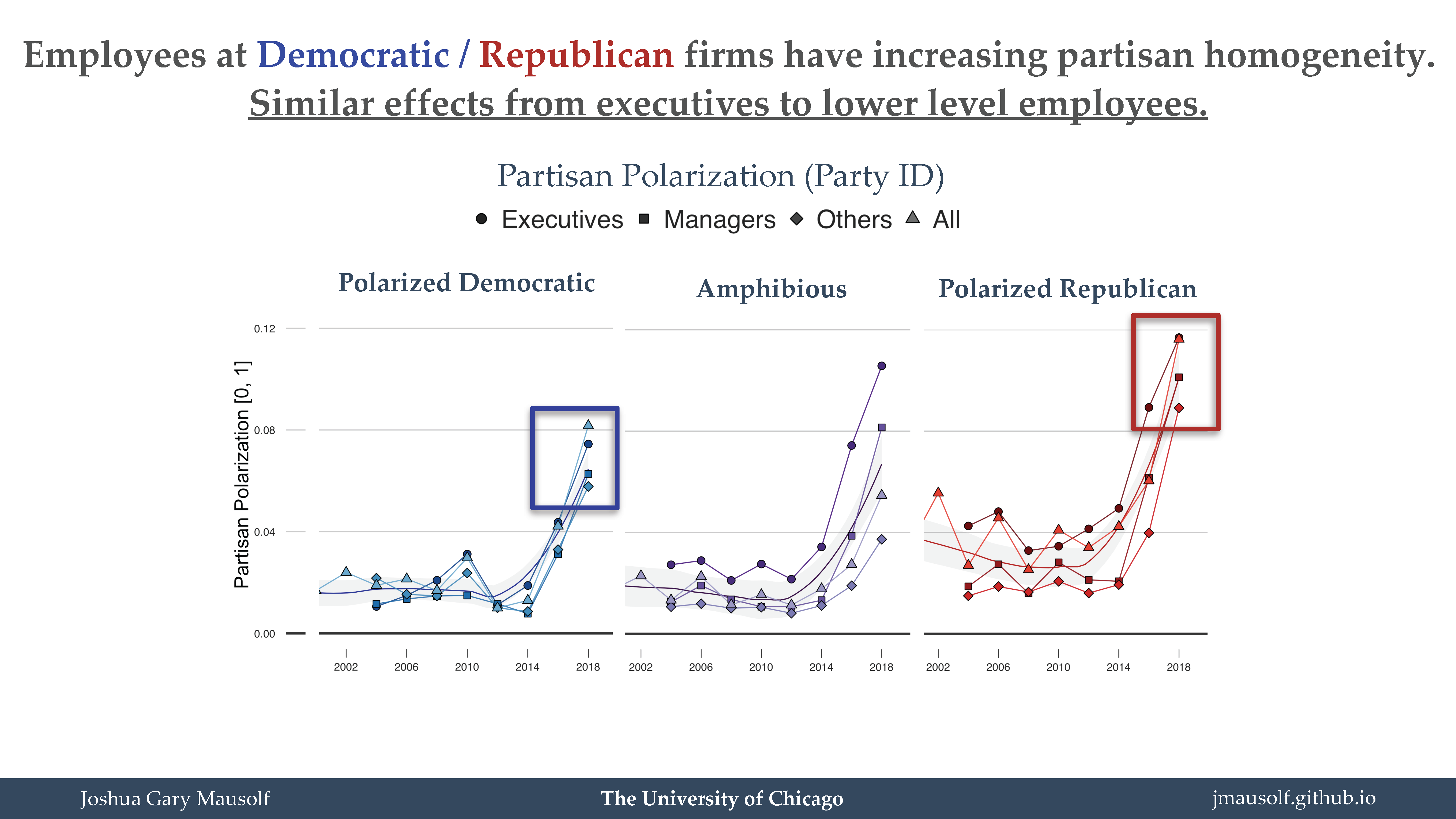
|
|
Office Politics: How Affective Polarization and Partisan Homophily Alter Hiring Decisions - In this paper, we see how partisanship affects hiring behavior in firms. Across a variety of firm industry's and job types, professional job applicants were more likely to receive callbacks when their partisanship matched the firm. Opposing partisans were less likely to receive a callback. 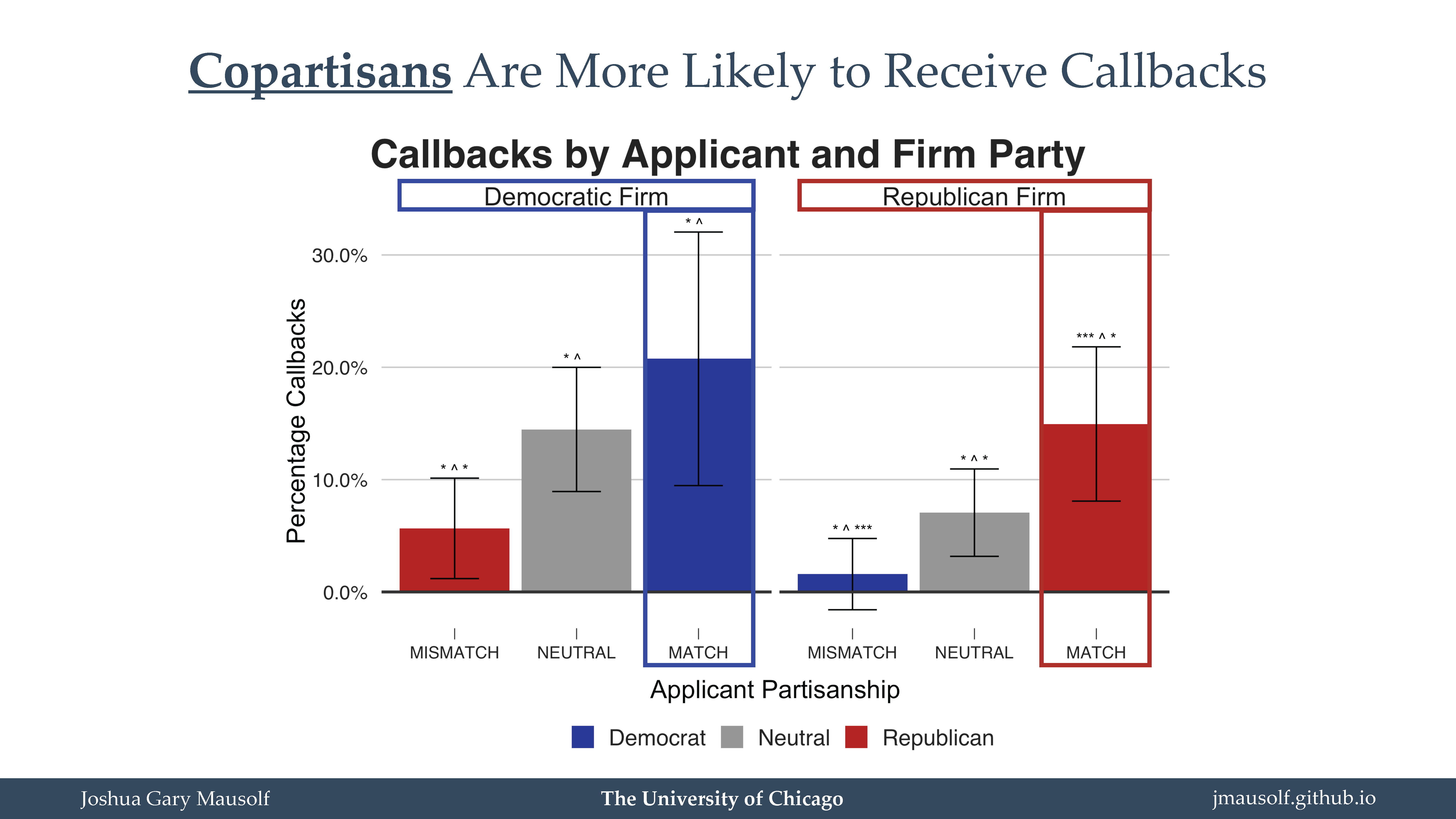
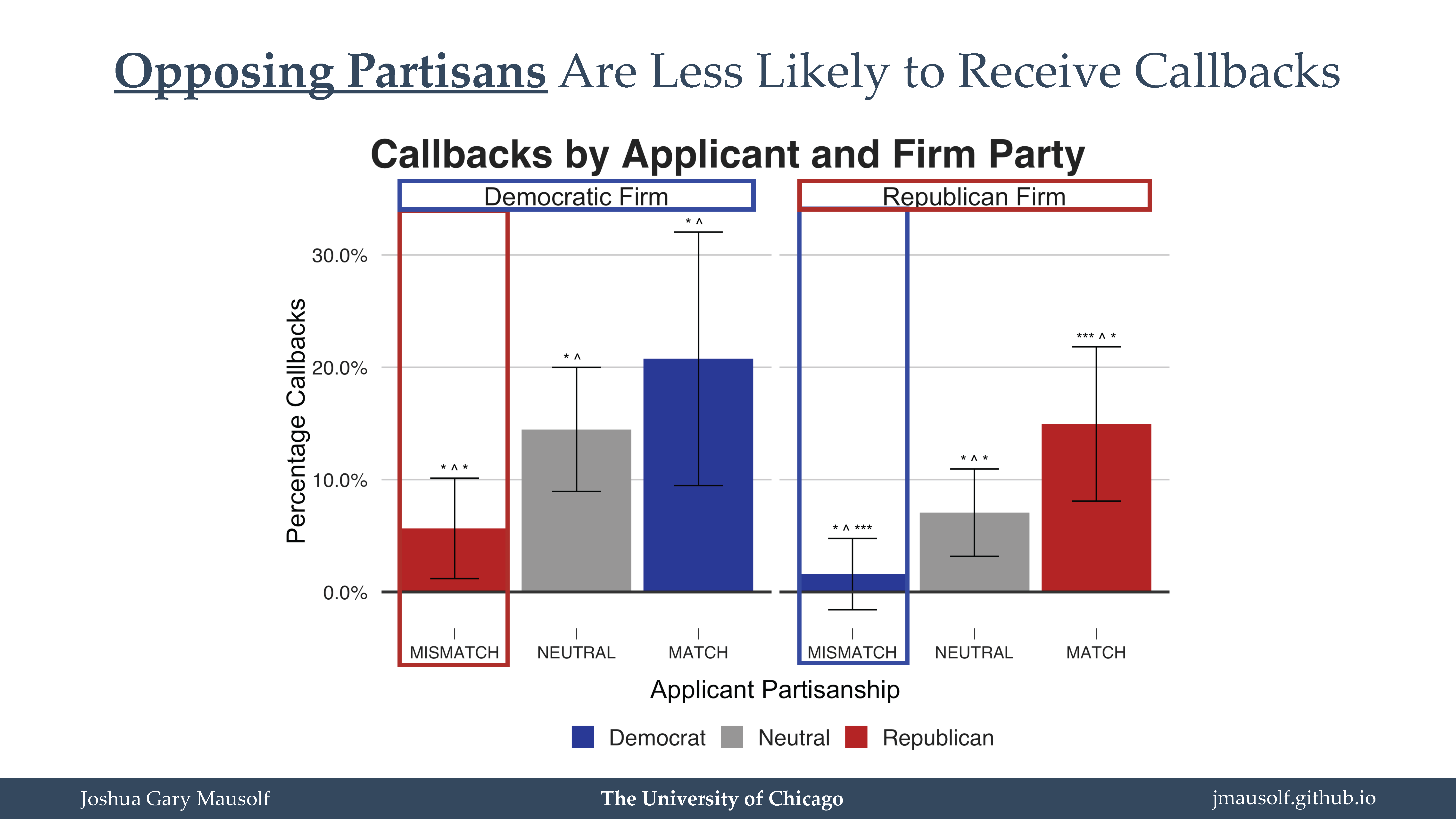
|
|
Party in the Boardroom: The Role of Affective Polarization in Corporate Board Appointments - A similar phenomenon persists in corporate board membership appointments. Whether the appointment was a board member exchange or simply a new board member, they were more likely to align with the prevailing partisanship of the board. Republican boards appointed fellow Republicans, Democratic boards appointed other Democrats. 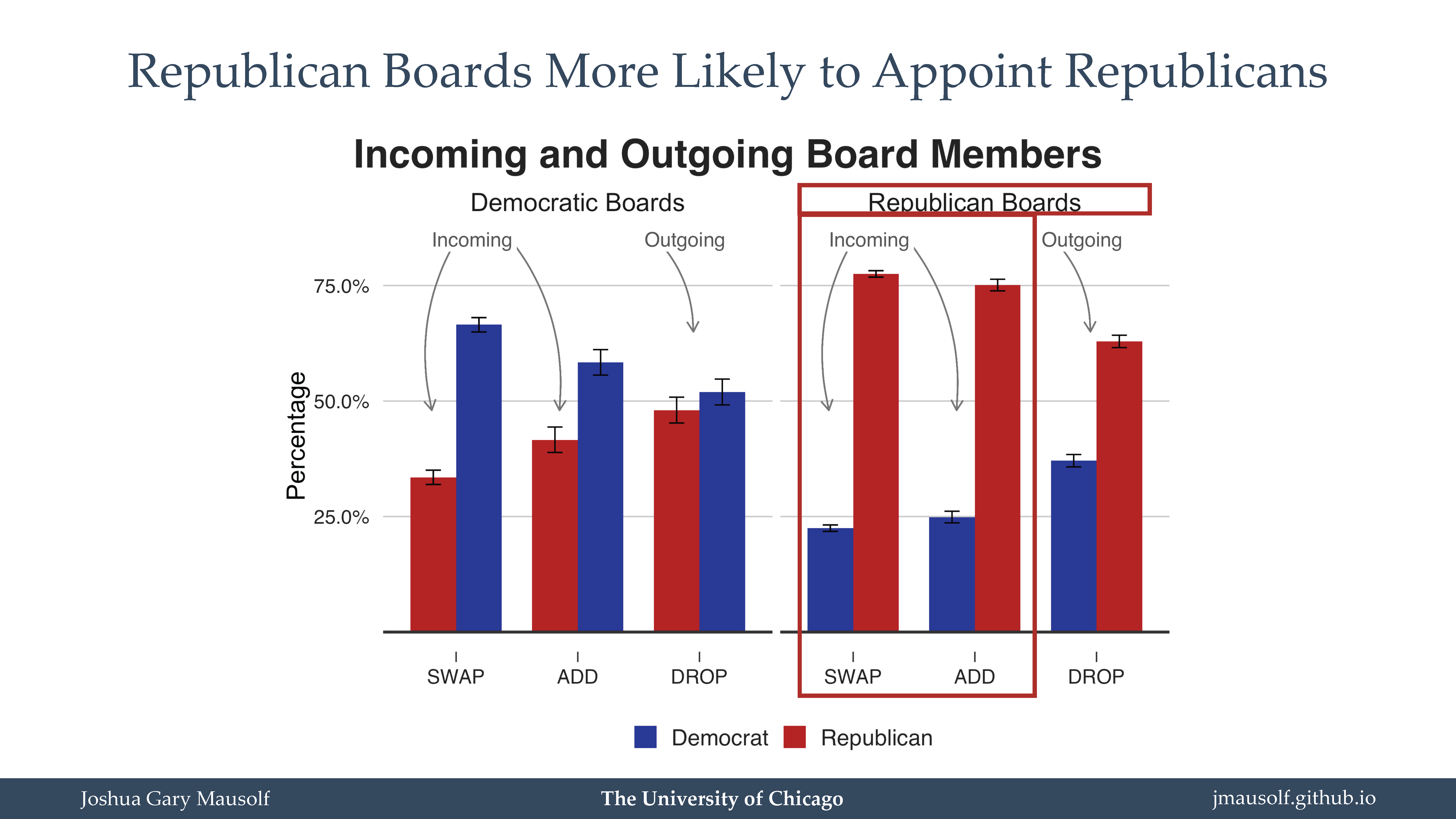
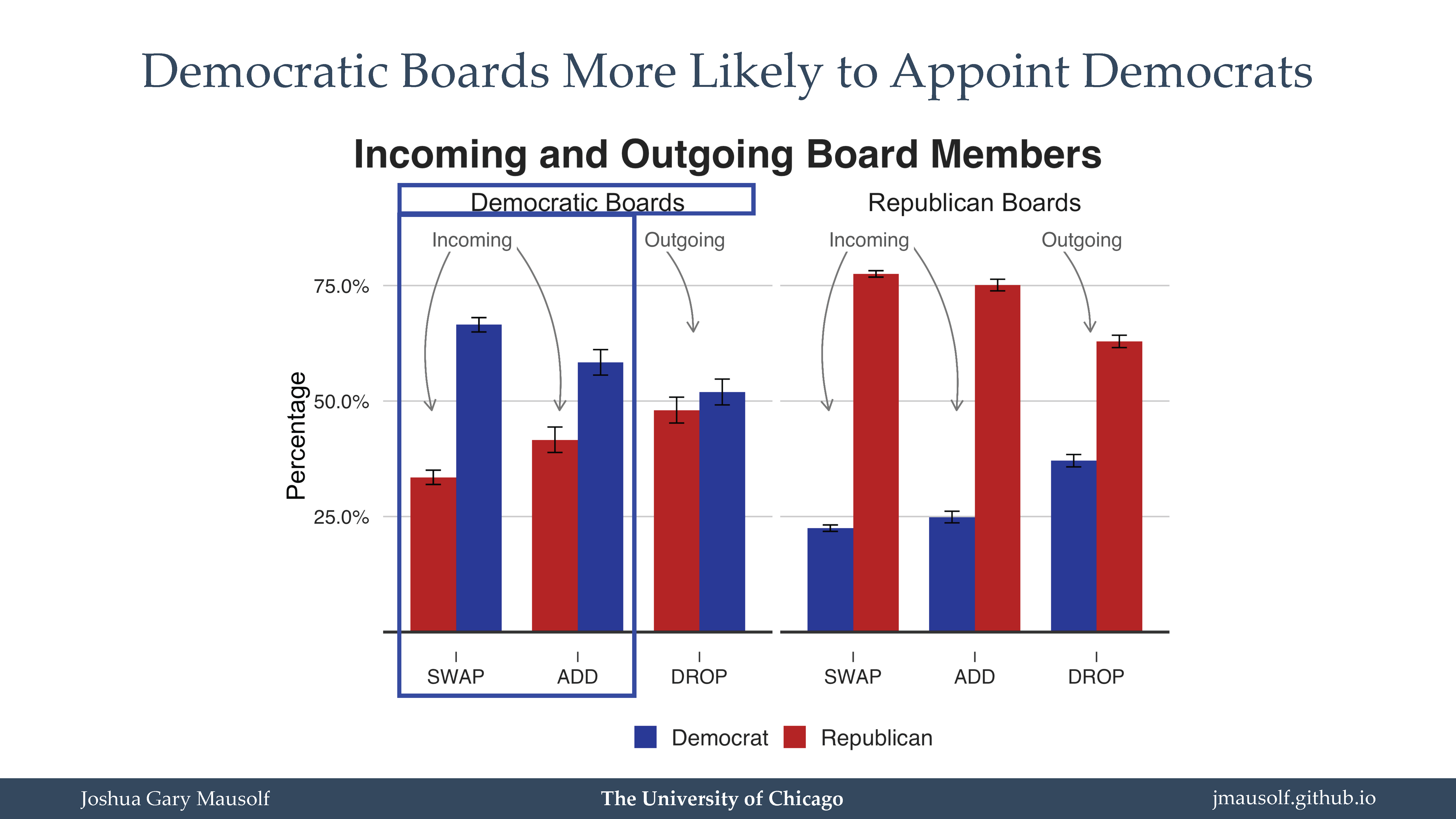
Collectively, these results substantiate the idea that partisanship reshapes firms' internal organizational structure, affecting not only the partisan balance of a firm, but also redefining exactly who is welcome to join a given firm, proceed therein, and rise through the ranks as a valued employee.
|